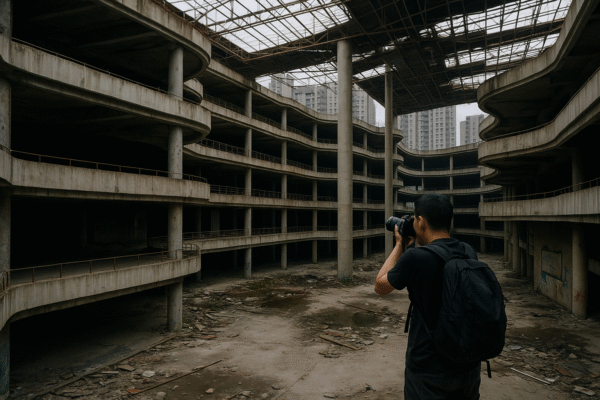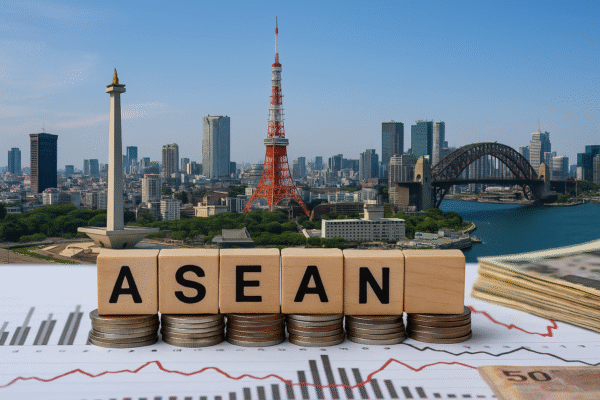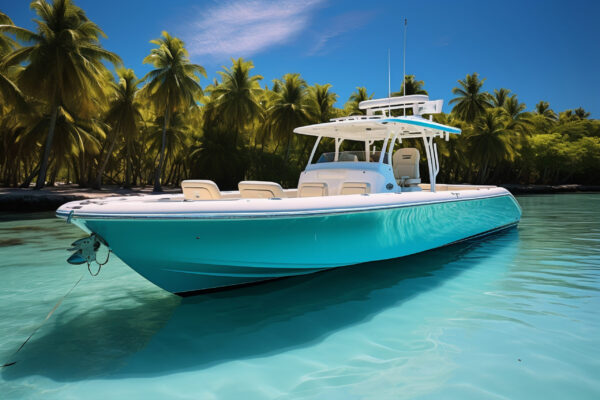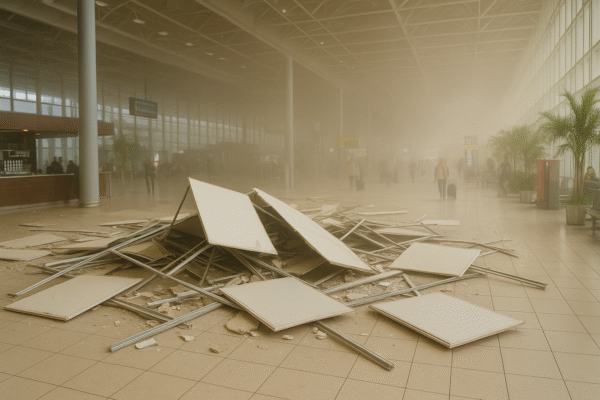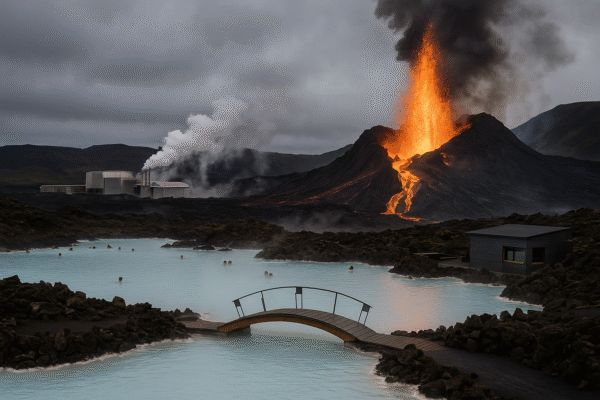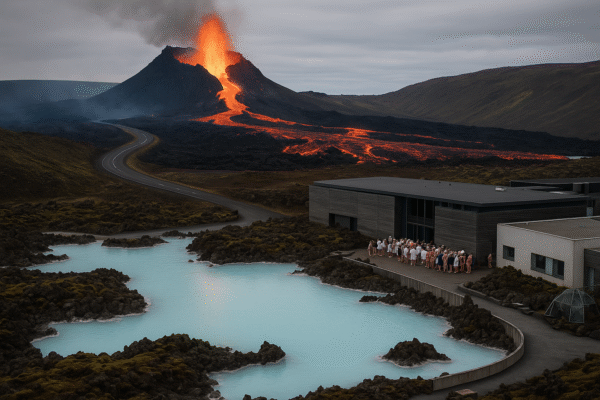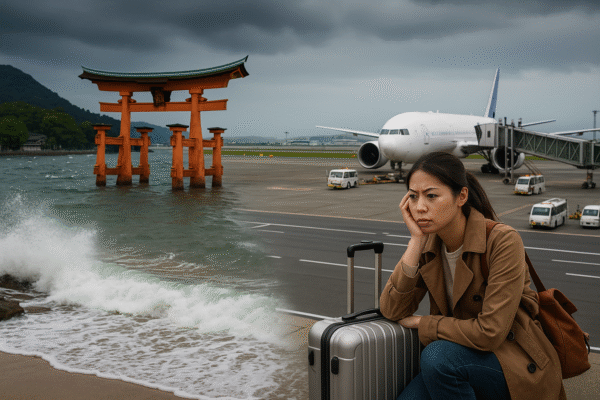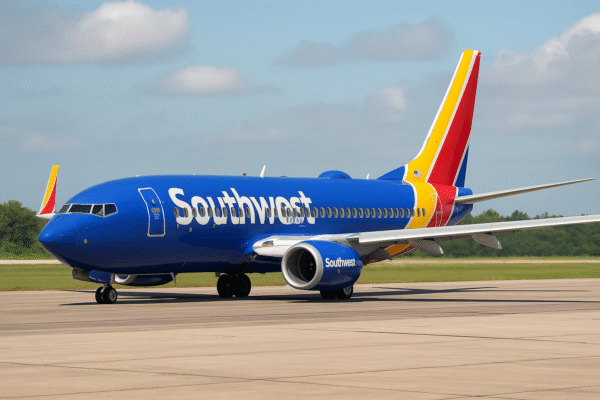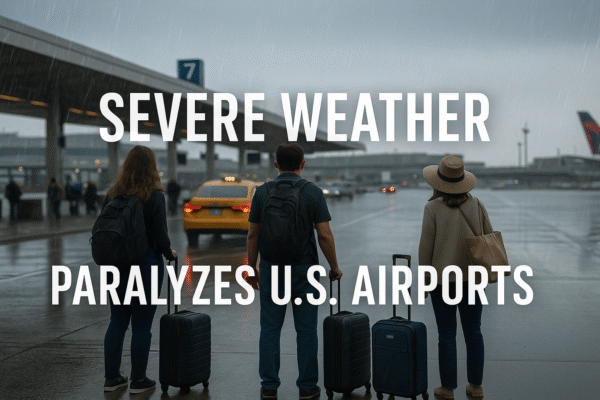Severe Weather Paralyzes U.S. Airports as Tourism from Canada, Latin America, and Caribbean Plummets Amid Tariff Turmoil
The U.S. travel industry is reeling from a new wave of extreme weather that has triggered over 12,000 flight disruptions across major airports in just one week, worsening an already fragile tourism economy strained by geopolitical tensions and international visitor decline. From Canada and Mexico to Brazil, Argentina, and the Caribbean, international travelers have faced canceled plans, prolonged delays, and growing dissatisfaction—threatening America’s global tourism appeal.
Severe Storms Trigger Nationwide Aviation Disruption
Airports from coast to coast—New York’s JFK and LaGuardia, Newark Liberty, Atlanta Hartsfield-Jackson, Dallas-Fort Worth, Chicago O’Hare, Orlando, Denver, and Washington Reagan National—have been overwhelmed by torrential rains, high winds, and flash flooding, forcing airlines to cancel or delay thousands of flights.
At Newark Liberty International Airport alone, data from FlightAware shows 150 delays and 173 cancellations in one day. LaGuardia faced 185 delays and 79 cancellations, while JFK reported 293 delayed and 45 grounded flights. Atlanta’s Hartsfield-Jackson experienced 326 delays and 37 cancellations, causing ripple effects throughout global flight networks.
Canada Hit Hard as Travel Sentiment Sours
Canadian travelers, once a mainstay of U.S. inbound tourism, are increasingly staying away. According to Statistics Canada, Canadian air visits to the U.S. declined 22.1% year-over-year as of June 2025. Road visits fell even further—down 33%—amid rising cross-border tariffs, unfavorable exchange rates, and diplomatic unease.
The latest storm chaos has only exacerbated frustrations. Airlines including Air Canada, WestJet, and Porter reported dozens of cancellations and delays to and from the U.S., disrupting summer travel plans and straining already tense bilateral tourism flows.
The Canadian government recently warned travelers of potential entry delays at U.S. border checkpoints and advised caution regarding unpredictable weather patterns affecting cross-border movement.
Latin America Faces Multi-Layered Travel Setbacks
Mexico, Brazil, and Argentina also saw significant travel impacts. Flights from Aeroméxico, Volaris, and VivaAerobus faced cascading delays at key U.S. airports like Dallas-Fort Worth and Orlando. Brazil’s GOL and Argentina’s Aerolíneas Argentinas avoided major cancellations but saw widespread disruption due to missed connections and rerouted itineraries.
With looming U.S. tariff proposals—up to 50% on Brazilian imports and 30% on Mexican goods—economic uncertainty is clouding the travel landscape. A growing number of travelers from these countries are reconsidering U.S. travel, with Latin American tour operators reporting a 15–20% drop in advance bookings to American destinations for late 2025.
Caribbean Tourism Collateral Damage
Caribbean nationals were particularly affected due to their reliance on major U.S. hubs like Miami, Atlanta, and New York for onward connections. Carriers such as Caribbean Airlines and interCaribbean Airways faced extensive flight disruptions, leaving hundreds of leisure and family travelers stranded.
Tourism boards in Jamaica, Barbados, and the Bahamas noted increased cancellations and trip postponements in July, with many citing unpredictable U.S. weather and rising travel costs as top deterrents.
U.S. Domestic Travel and Economic Fallout
The brunt of the chaos was also borne by U.S. travelers. As peak summer travel season unfolds, thousands have missed vacations, weddings, and business trips. Major carriers—United, American, Delta, JetBlue, and Southwest—scrambled to rebook passengers and deal with mounting customer service complaints.
Airports and hotel operators in cities like Orlando, Las Vegas, and New York estimate millions in revenue losses. The U.S. Travel Association forecasts a $12.5 billion drop in international visitor spending this year, marking one of the worst downturns since the pandemic.
Tariff Tensions Escalate Tourism Woes
Tourism has become collateral damage in rising trade disputes. The Biden administration’s proposed 35% tariffs on Canadian exports—set to begin in August 2025—has further chilled sentiment among Canada’s outbound travelers. An Angus Reid survey revealed nearly half of Canadians have either canceled or reconsidered trips to the U.S. this year.
Likewise, tariffs on Brazilian and Mexican imports are likely to deter middle-class travelers, already hit by inflation and rising airfare. Argentina, though less directly impacted by tariffs, has seen a 10% year-on-year decrease in U.S.-bound visitors, reflecting the broader unease among South American tourists.
International Visitor Decline Expands
The tourism downturn extends beyond the Americas. According to the National Travel and Tourism Office (NTTO), overseas arrivals to the U.S. dropped 14% in the first half of 2025. Europe’s top source markets—Germany, France, and the UK—registered declines of up to 28%, driven by diplomatic strains and fears of unpredictable entry policies and disruptions.
Job and Business Losses Loom
Local economies dependent on tourism are sounding alarms. Florida may lose up to 800,000 Canadian tourists in 2025, translating to a $4 billion shortfall. Duty-free stores near U.S.-Canada borders report revenue losses of 70–80%. Layoffs have begun in affected sectors, from airport ground staff to hotel front desks.
Industry Leaders Urge Immediate Policy Action
Travel stakeholders are demanding a coordinated federal response. The U.S. Travel Association has called for improved weather forecasting systems, rapid response funding for airports, and international marketing campaigns to restore confidence in American tourism.
“Without strategic intervention, the U.S. risks losing its competitive edge in global travel,” said Geoff Freeman, CEO of U.S. Travel Association.
Outlook: Rebuilding Confidence in U.S. Tourism
As the immediate storm crisis wanes, the real challenge lies ahead: restoring trust among international visitors. Addressing both natural and political turbulence is now essential to preventing long-term erosion of America’s position as a global tourism leader.
Unless swift action is taken, tourism-dependent U.S. states face prolonged economic headwinds, risking a cascade of job losses and diminishing returns in a once-thriving sector.
For more travel news like this, keep reading Global Travel Wire

